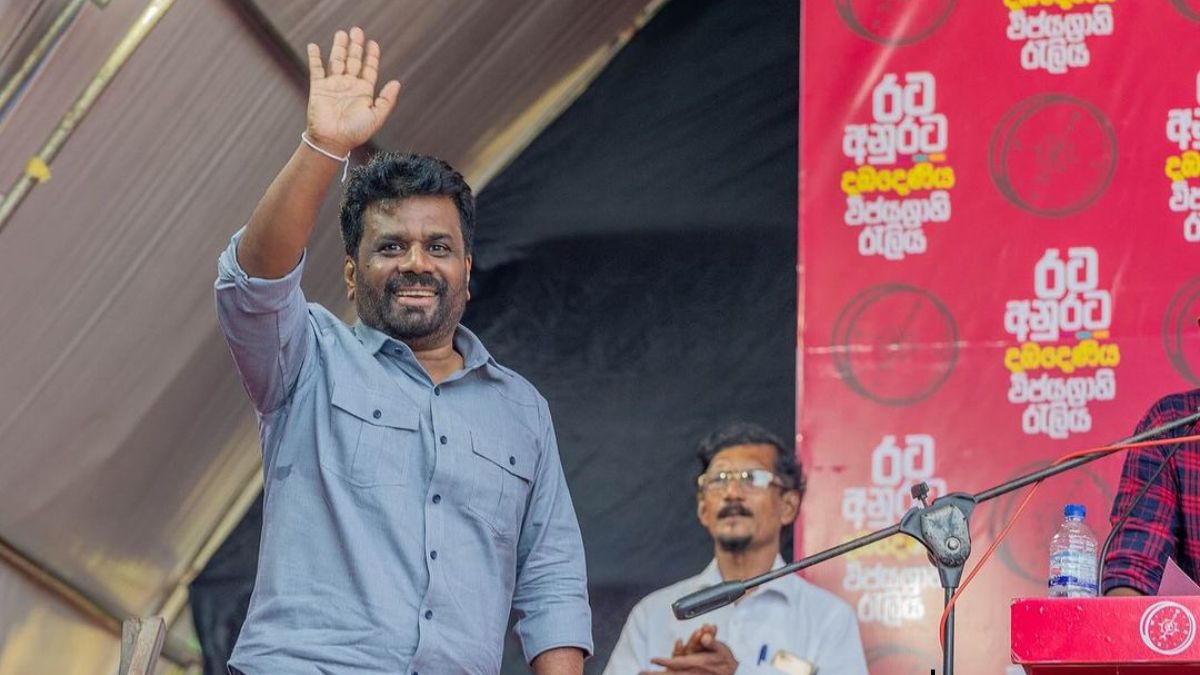Sri Lankan President Anura Kumara Dissanayake’s party NPP has won a landslide victory in parliamentary elections.
In the 225-member parliament, the NPP has won the majority with 141 seats, according to the Election Commission of Sri Lanka. Elections are being held for 196 of these seats on proportional representation basis. The remaining seats would be allocated on their basis of their share to overall votes polled.
The NPP appears to be headed towards winning a two-third majority in the parliament.
The NPP’s landslide victory comes weeks after Dissanayake won the presidential elections in September by a margin of around 12 lakh (1.2 million) votes.
The rise of Dissanayake and NPP marks the departure of Sri Lanka’s longtime strongmen Rajapaksas. Their party SLPP has been relegated to just two seats so far in the parliamentary elections.
Dissanayake ran on anti-corruption plank, arguing that the benefits of the economic recovery programme have not been equal across the country. He has also been benefitted by the perception that previous president, Ranil Wickremesinghe, was chummy with the unpopular Rajapaksas. The tax hikes that came with the terms of the International Monetary Fund’s (IMF) bailout made Wickremesinghe more unpopular and boosted Dissanayake’s prospects.
Dissanayake’s NPP was a favourite to win the election from the onset, but the scale of the victory was not expected.
While Dissanayake’s party is now leading the polls, it has just three members in the outgoing parliament, highlighting the surge in popularity the party acquired since the national uprising against the Rajapaksas two years ago at the peak of financial crisis.
Impact Shorts
More ShortsEconomy continues to be the main issue for Sri Lankans, who are not out of the woods yet. Even as prices have relatively stabilised and the shortages of essentials has been managed since the peak of around two years ago, the benefits have been criticised as not favouring the commonfolk very much. Moreover, around 25 per cent of the population continues to remain under the poverty line, which is a challenge for any government.
)